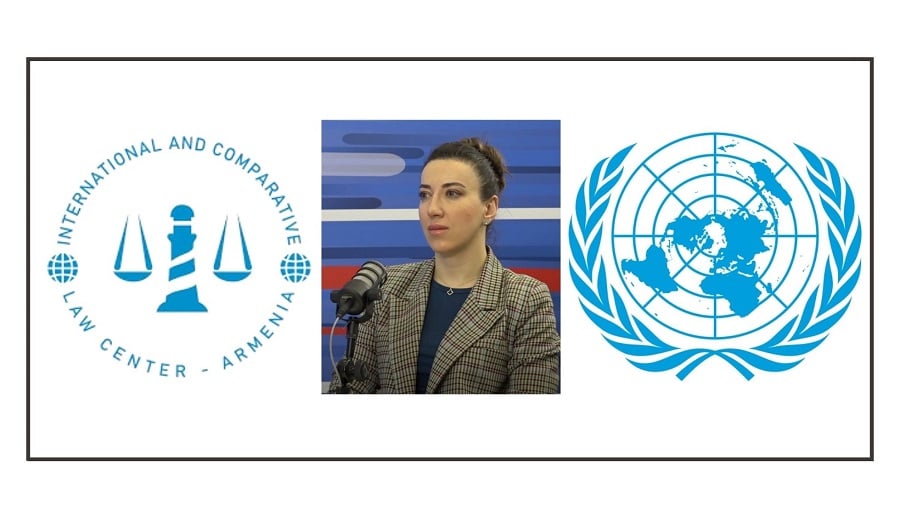The “Center for International and Comparative Law” has submitted a general complaint to the UN Working Group on Enforced or Involuntary Disappearances regarding the forced disappearances of Armenians in Azerbaijan. The history of Azerbaijan’s discriminatory policies against ethnic Armenians, as well as the testimonies of repatriated prisoners of war, indicate that the actions of Azerbaijan government representatives are driven by deeply rooted racial and ethnic prejudice, The Complaint, submitted in May 2024, highlights Azerbaijan’s violations of international law and calls for an urgent response from the international community.
The Complaint provides a detailed account of the fates of Armenian civilians and servicemen who forcibly disappeared following the 44-day war of 2020 and the Azerbaijani aggressions of September 2022 and 2023. It places particular emphasis on the fact that “Azerbaijan has failed to provide the UN Working Group on Enforced or Involuntary Disappearances with adequate information regarding the fate and whereabouts of forcibly disappeared Armenian civilians and servicemen.”
The complaint also underscores that the absence of information regarding the disappeared individuals and the uncertainty surrounding their fates cause “profound suffering to their families.”
According to the Working Group’s 2019 report, only one case of enforced disappearance had been registered in Azerbaijan from 1980 to 2019. In the 2022 report, this number rose to 19 cases for the period from 1980 to 2022. In the 2024 report, the total number of enforced disappearances registered in Azerbaijan between 1980 and 2024 reached 34. This data demonstrates that the majority of enforced disappearances in Azerbaijan occurred after 2019. According to the latest report, only 3 of these cases have been resolved. All cases reported by the Working Group concern individuals of Armenian origin. This fact, together with the testimonies of repatriated prisoners of war, demonstrates that the enforced disappearances occurring in Azerbaijan are ethnically motivated, with individuals being targeted due to their Armenian ethnicity.
The complaint presents, in chronological order, detailed information on each case transmitted to Armenia by the Working Group. For each case, the complaint includes factual data: when and where the individuals were last seen, in what context, with references to photos and videos circulated on Azerbaijani Telegram channels.
On October 20, 2020, Azerbaijan captured the town of Kovsakan (Zangilan). A video posted on an Azerbaijani YouTube channel shows a group of about 25 armed individuals in the uniform of Azerbaijan’s State Border Service standing in front of the school in Kovsakan, declaring that the town is under their control. On October 21, 2020, 66 Armenians, 62 servicemen and 4 civilians, were deployed from the Kapan military base to Kovsakan.
Read also
As they approached the outskirts of Kovsakan, the Armenian unit was ambushed by the Azerbaijani State Border Service. Of the 66 Armenians, 13 were killed in combat, 24 managed to retreat, and 29 were taken captive. Of the 29 captured servicemen, 5 were later repatriated to Armenia.
Three of the repatriated servicemen, Tigran Khachatryan, Artur Stepanyan, and Gegham Elibekyan, confirmed that one of the captured individuals was Erik Nersesov (one of the drivers), as well as another Armenian serviceman. Erik Nersesov was last seen at the secondary school in Zangilan. He was later transferred to the building of the military police, where he was last seen in late October 2020.
Aleksandr Yeghiazaryan was captured alongside the same three repatriated soldiers (Tigran Khachatryan, Artur Stepanyan, and Gegham Elibekyan) and was last seen alive in Baku at the military police building on October 24, 2020. In November 2021, a video was posted on Telegram showing an Azerbaijani soldier slapping Aleksandr Yeghiazaryan while holding a bayonet in his other hand.
Separate footage confirms the abduction of two men, Arsen Karapetyan and Norik Arakelyan. Later videos show Arsen and Norik in captivity, with their captors forcing them to repeat the phrase “Karabakh is Azerbaijan,” as stated in the complaint.
There are at least 80 documented cases of enforced disappearance involving Armenians who were last seen alive in Azerbaijani captivity. These documented cases were first reported in 2022 by Siranush Sahakyan, head of the “Center for International and Comparative Law,” and later confirmed by the University Network for Human Rights. The actual number may be much higher, as the International Committee of the Red Cross registered 309 missing Armenians between 2020 and 2022.
The issue of the disappearance of Armenian soldiers and civilians remains a priority for the UN Working Group on Enforced or Involuntary Disappearances. During its 135th session in January 2025, the Working Group addressed this complaint and adopted a corresponding document referencing specific cases. The Working Group reviewed information on enforced disappearances from various countries, including Azerbaijan.
In accordance with its standard procedure, the Working Group transferred six cases to the Government of Azerbaijan concerning Armenian nationals Maksim Grigoryan, Arsen Hayrapetyan, Hayk Khachaturov, Mikayel Mkrtumyan, Karen Petrosyan, and Yurik Poghosyan. These individuals disappeared in October 2020 after being captured during the 44-day war.
The Working Group also reviewed new and updated information regarding the cases of Yervand Geghamyan, Boris Hayrumyan, Artur Harutyunyan, and Hrant Verdyan. In response to the complaint letter, the Government of Azerbaijan provided information concerning only 15 of the unresolved cases registered with the Working Group. However, the explanations received were deemed unsatisfactory, and the Working Group decided to request further clarification from the Azerbaijani government.
The “Center for International and Comparative Law,” in cooperation with the “Armenian Legal Center for Justice and Human Rights,” continues its work in this direction with sustained dedication.
International and Comparative Law Center — Armenia NGO



















































